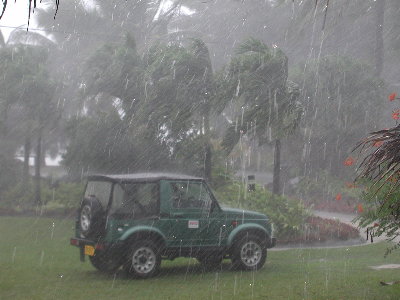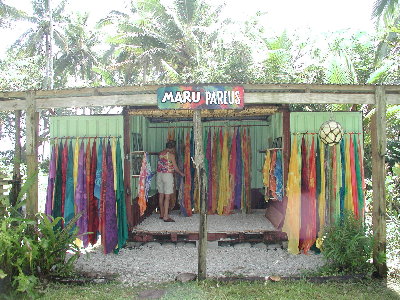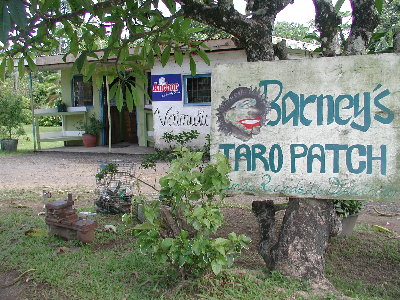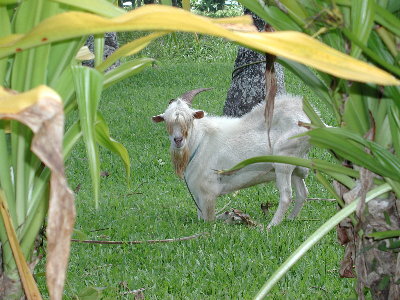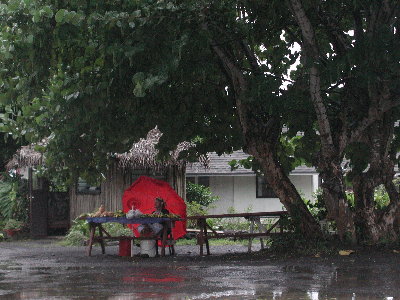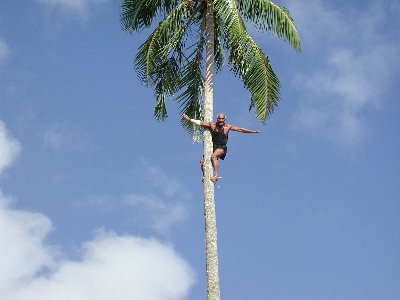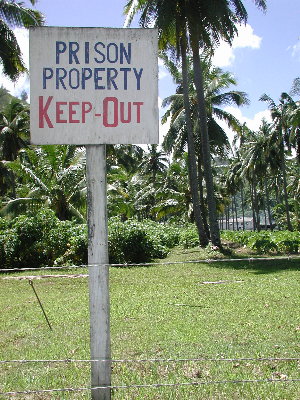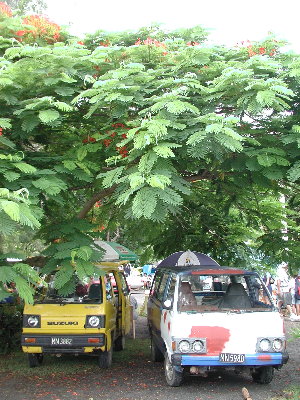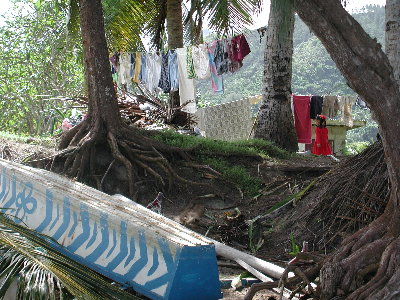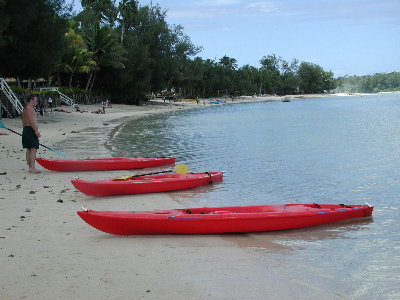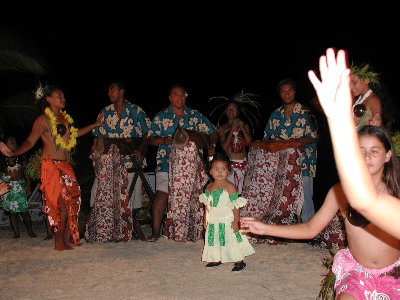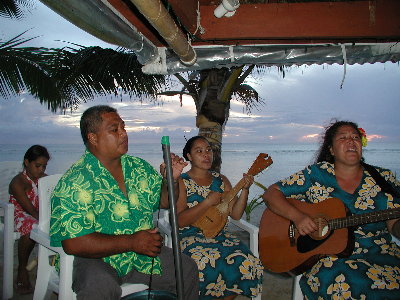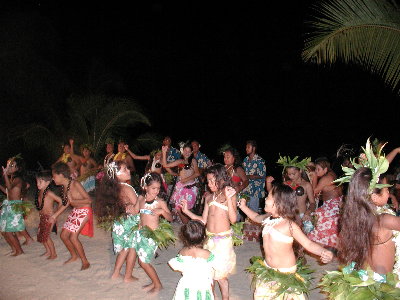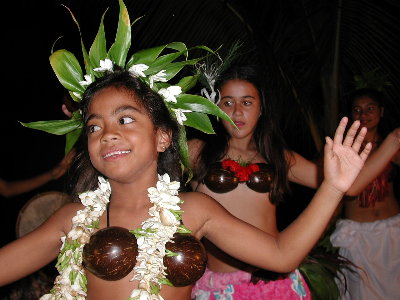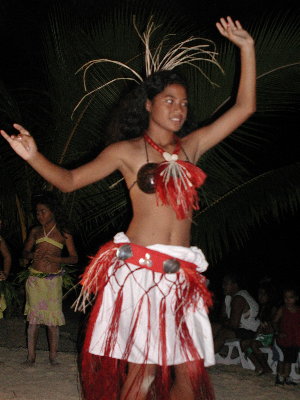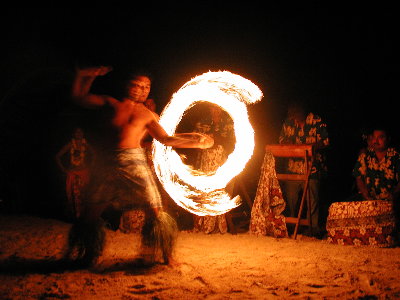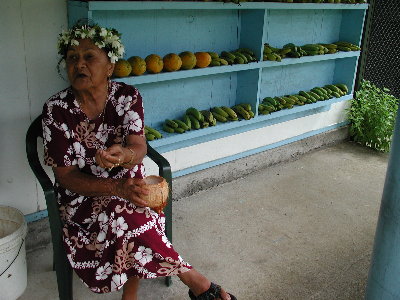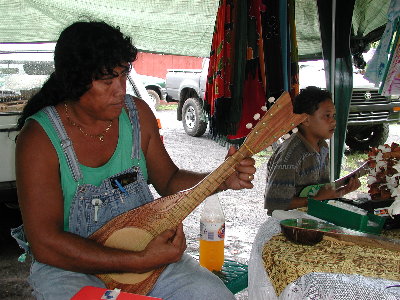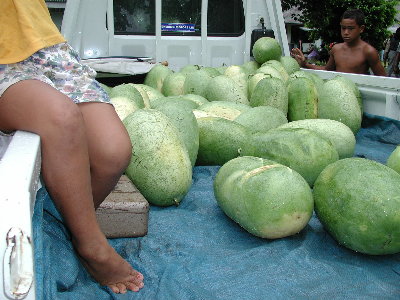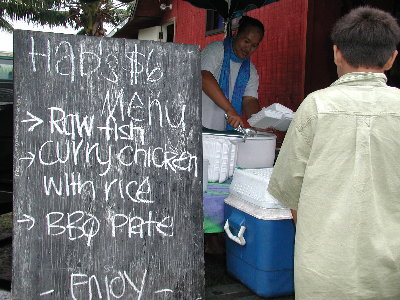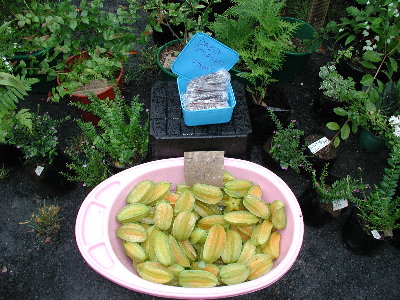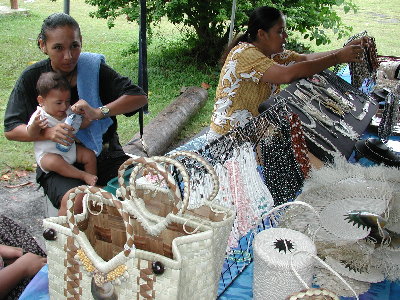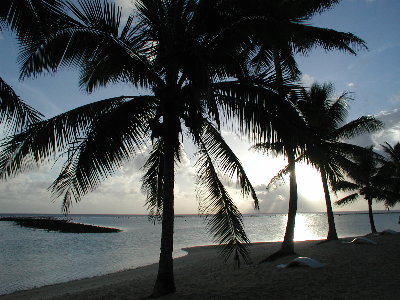The Sky Is Crying
- Los Angeles.
By 1 in the morning on Saturday, we were flying away from the Cook Islands. By noon the same day, we were in L.A. Kirk’s aunt met us at the airport, and also brought the news that Kirk’s grandma had passed away the day before.
Death happens, and there’s probably no good time for it. But when e-updates started hinting that Grandma was failing, I said, in a moment of strange and selfish faith, “I think she’ll wait ‘til we get home.” As if punctual until the end, she died hours before we hit American soil. Naturally, that put a damper on our California visit. And the sky responded in-kind with rain the whole 48 hours we were there.
We pursued some low-key activities nonetheless—eating seafood, driving around the charming neighborhoods of Long Beach and points south, and visiting the aquarium. But the sky cried so hard that Pacific Coast Highway 1 became flooded. So we mostly took it easy, and saved sightseeing for sunnier times.
Grandma’s passing provides a timely reminder why, despite obvious costs, we indulge in temporary retirement now and then. Because even if you live long like she did, life is short. Because you have little control over when it ends. And because, for the most part, the world is a radiant place full of people who want to meet you. So it doesn’t hurt to get up, get out, and get away while you can.
Grandma was gregarious. Even in her final years, all she needed was a public bench and she’d likely have an acquaintance within minutes. That kind of old-fashioned openness and trust may be fading in a rushed and anxious era. But maybe not. As we traveled, we found that whoever was our new neighbor usually became a new friend. We rarely (never?) had to feel lost or lonely. And even when we didn’t speak the language, a greeting usually got one back.
So while we were intimidated by our own ambitious itinerary, there was little else to scare us out there. We encountered no holdups, thefts, or prejudice. Heck, only one airplane was late—less than an hour, and we lost no luggage. The only bad vibes we can recall, in fact, were three honks at Kirk’s campervan driving (and he probably deserved many more).
We’re not pollyannaish. And this trip could have gone 100 other directions. But it didn’t, and we had a world-class quest. Meanwhile, we also created this weblog, wrote a book, discovered some sweet places, and rediscovered how much fun time together can be.
We could go on—in our travels, about our travels, and about Grandma too. But it’s time to go home. First, though, we have one more trip that wasn’t on the original itinerary: to the prairies of South Dakota to say good-bye to someone who could make you believe that, oh yes, you can go around the world. A robust spirit who was always an inspiration is now a guardian angel.
Then it’s back to Minnesota, back to work, and back to other symptoms of normalcy. That includes anonymity. So to whatever extent our lives have been on display (should anyone be watching), we now close the curtains.
Thanks for joining us. Wherever you may be headed, happy travels. And Godspeed.









